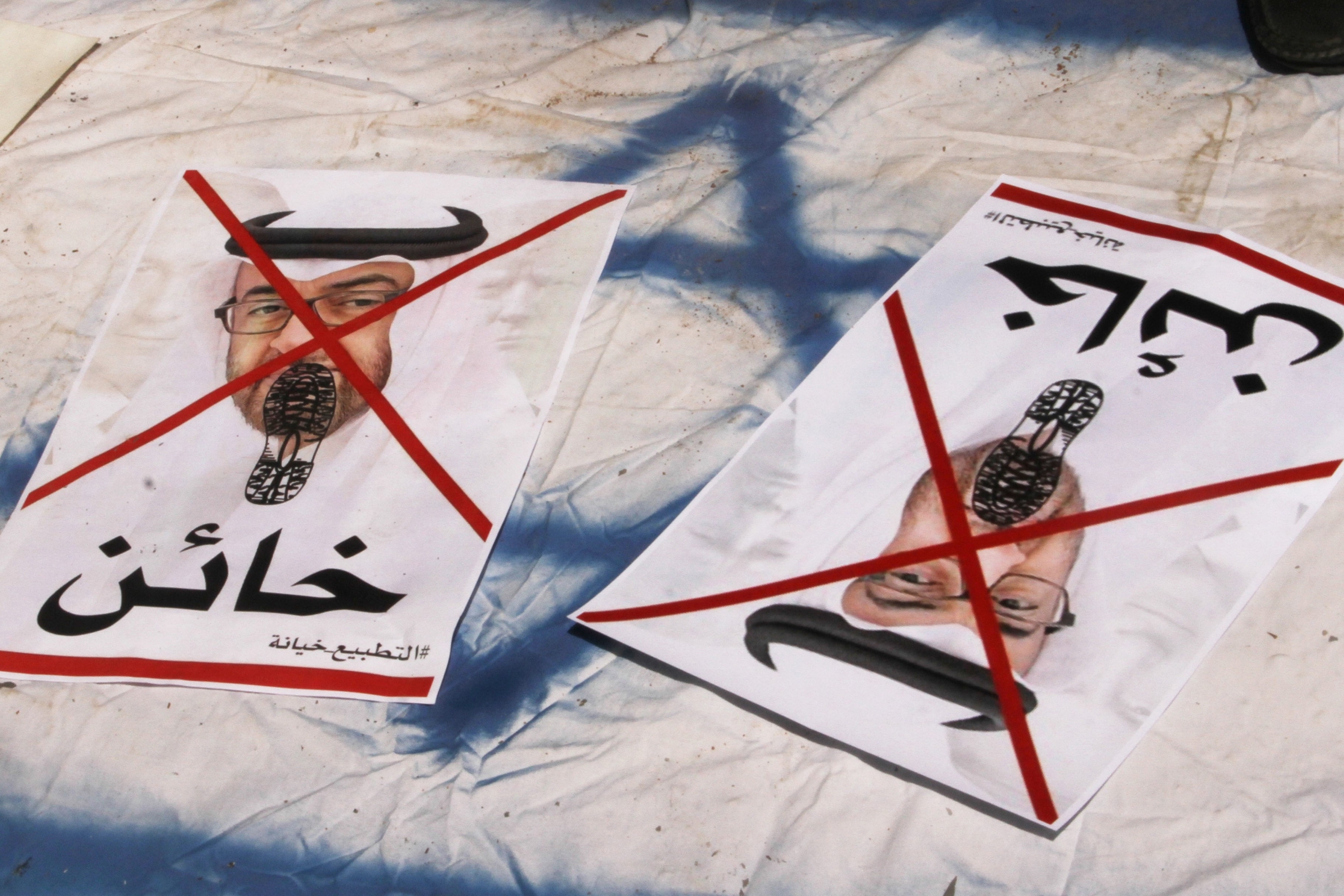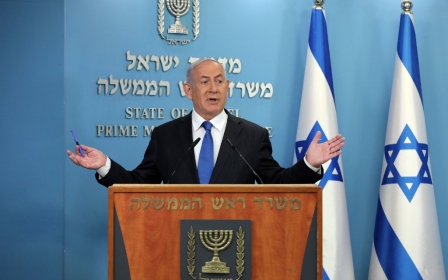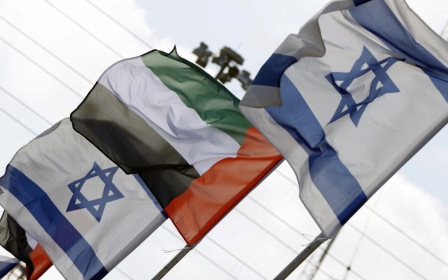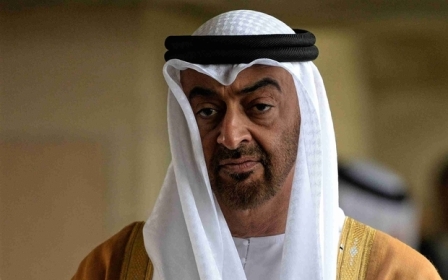UAE-Israel deal: Breakthrough or betrayal?

At a press conference in the White House on 13 August, US President Donald Trump proudly announced the deal he had helped broker between the United Arab Emirates and Israel to establish full diplomatic relations.
He lauded it as "a significant step towards building a more peaceful, secure and prosperous Middle East".
Trump's national security adviser Robert O’Brien told reporters that this deal should make the president "a front-runner for the Nobel Peace Prize".
Reactions to this deal have been mixed. Major European political leaders and the mainstream media hailed it as a momentous, historic breakthrough. British Prime Minister Boris Johnson called it "hugely good news".
No land for peace
New MEE newsletter: Jerusalem Dispatch
Sign up to get the latest insights and analysis on Israel-Palestine, alongside Turkey Unpacked and other MEE newsletters
The Palestinian response, on the other hand, has been uniformly hostile, denouncing the deal as a betrayal of the Palestinian struggle for liberation and even as a stab in the back. The official daily newspaper of the Palestinian National Authority, al-Hayat al-Jadida, described the deal, in angry red letters, as "Tripartite Aggression Against the Rights of the Palestinian People".
What the new accord tells Israel, in effect, is that it can normalise relations with the Gulf states without ending its occupation of Palestinian land
Al-udwan al-Thulathi, the tripartite aggression, was the Arabic name for the Anglo-French-Israeli conspiracy to attack Egypt in 1956. No Arab party was involved in the aggression against Egypt in the Suez war.
Today, the Emirati rulers stand accused of collusion with Israel and the US in diplomatic aggression against their Palestinian brothers.
A core principle of Arab diplomacy in the conflict with Israel is "land for peace": Israel gives back Arab land it occupied in the June 1967 war in return for peace with its neighbours. This was the basis for Egypt’s peace treaty with Israel in 1979 and Jordan’s peace treaty in 1994.
The UAE-Israel agreement damages the prospects of overall peace by abandoning the land for peace principle in favour of peace for peace. Support for Palestinian rights used to be one of the few points of consensus between the authoritarian Arab regimes and their people.
This consensus is embodied in the Arab Peace Initiative which was endorsed by the Arab League in 2002. It offers Israel peace and normalisation with all 22 members of the Arab League in return for agreeing to an independent Palestinian state on the Gaza Strip and the West Bank with a capital in East Jerusalem.
In other words, withdrawal from the Palestinian occupied territories was a condition for normalisation with the rest of the Arab world.
If any peace plan deserved to be called the "deal of the century", this was it. Yet, Israel ignored it because in relation to the Palestinians it preferred land to peace. What the new accord tells Israel, in effect, is that it can normalise relations with the Gulf states without ending its occupation of Palestinian land. Bahrain and Oman have welcomed the UAE move and they are likely to follow suit.
Saudi Arabia, the author of the 2002 Arab Peace Initiative, defied American pressure to sign a similar deal.
Its foreign minister, Prince Faisal bin Farhan, ruled out the possibility until the Palestinian issue is resolved. He emphasised that peace with the Palestinians must be achieved by Israel as a pre-condition for any normalisation of relations. He also said that the kingdom remains committed to peace with Israel on the basis of the Arab Peace Initiative.
Saudi defiance of US pressure may deter other Gulf states, like Kuwait, who have so far remained officially silent, from following the UAE example.
A diplomatic victory
The Emiratis claim that they acted in the Palestinian interest by persuading Israel to abandon its plan to formally annex large parts of the West Bank. This claim is unconvincing on several counts.
For decades Netanyahu has been arguing that it would be possible to normalise relations with the Gulf states without resolving the conflict with the Palestinians first
First of all, the Emiratis did not consult the Palestinians; they went behind their backs to talk to the enemy and then used them as a fig leaf. Second, the creeping annexation of the West Bank has been going on for the last 53 years and the accord can do nothing to stop it.
Third, Israeli Prime Minister Benjamin Netanyahu’s recent plan to formally annex roughly a third of the West Bank, including the settlement blocs and the Jordan Valley, would be a unilateral and illegal land grab; he deserves no reward for putting it on hold.
Fourth, Netanyahu agreed only to postpone, not to abandon his plan of formal annexation. Immediately following the announcement in the White House, Netanyahu made it crystal clear on Israeli TV that annexation remains his long-term goal.
The accord with the UAE thus represents a major diplomatic victory for the right-wing Israeli leader.
For decades Netanyahu has been arguing, against the conventional wisdom, that it would be possible to normalise relations with the Gulf states without the need to resolve the conflict with the Palestinians first.
Powerful allies
This is what he calls the outside-in approach: developing open diplomatic, economic and strategic relations with the Gulf states in order to isolate and weaken the Palestinians and compel them to settle the conflict on Israel's terms.
Netanyahu's success in this instance owed less to his powers of persuasion than to the changing regional and international dynamics. The Gulf monarchies feel increasingly threatened by Iran and its proxies in Bahrain, Yemen, Iraq, Syria and Lebanon. To counter this threat, they need powerful allies.
One ally is President Trump who withdrew from the nuclear agreement that his predecessor had concluded with Iran in 2015. Another ally is Netanyahu who has been a relentless campaigner against Iran and its nuclear ambitions. Geopolitics resulted in a realignment of forces, pitting the Trump administration, Netanyahu’s government, and the Gulf rulers against Iran.
The Palestinian issue, the core of the Arab-Israeli conflict, was sidelined in the process.
It is one thing for the rulers of the UAE to pursue their narrow national interest by bringing their decades-long covert cooperation with Israel into the open. That can be justified as traditional realpolitik: Iran is their enemy and they need Israel's help to confront it. But to pretend that the UAE struck the peace deal with Israel in order to help the Palestinians achieve their goals is rank hypocrisy.
The American brokers of the UAE-Israel deal have called it the Abraham Accord. Abraham is revered by all the three monotheistic religions founded in the Middle East - Christianity, Islam and Judaism - as a man of peace. By naming the deal after the patriarch, the brokers tried to spin it as a contribution to peace.
It is here that the gap between rhetoric and reality is most striking. In the words of Ali Abunimah, the founder of Electronic Intifada, the name Abraham Accord is "an effort to dress up a sordid political deal that undermines Palestinian rights as a lofty achievement for interfaith understanding".
There is an Arabic saying that something that starts crooked remains crooked.
Sadly, this may well turn out to be the fate of the Abraham Accord.
The views expressed in this article belong to the author and do not necessarily reflect the editorial policy of Middle East Eye.
Middle East Eye delivers independent and unrivalled coverage and analysis of the Middle East, North Africa and beyond. To learn more about republishing this content and the associated fees, please fill out this form. More about MEE can be found here.






